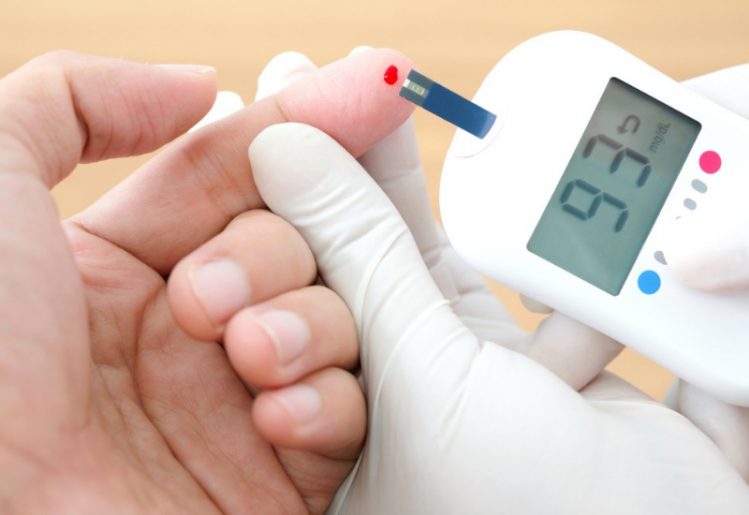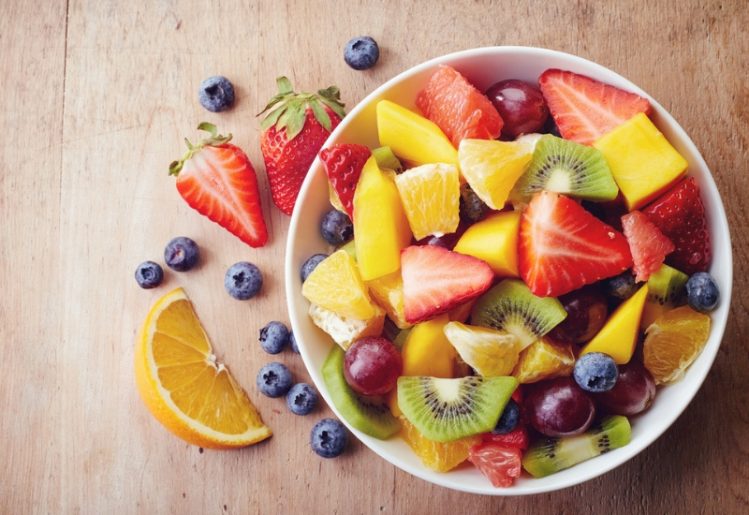Glucose, or sugar, is the body’s primary source of fuel. Insulin is responsible for moving this sugar into your cells so it can be used as energy. Not only do people with type 2 diabetes have a limited ability to process glucose, they also often exhibit a resistance to insulin, exacerbating the problem and contributing to uncontrolled higher-than-normal blood sugar levels. Alternatively, their bodies may not produce enough insulin to properly maintain the necessary glucose levels in the cells.
Type 2 diabetes can affect anyone, though it most often manifests in adults and children suffering from obesity. While there’s no cure for the disease, it can be managed with diet and exercise. In more extreme cases, insulin therapy or medication may be needed to help maintain a healthy blood sugar balance. Keeping your body at a healthy weight can also help you control how your body processes glucose. New research has discovered that drinking beverages sweetened with fructose can increase your risk of type 2 diabetes.
Common Symptoms of Type 2 Diabetes
 Type 2 diabetes can take a long time to manifest, so it is important to know the symptoms. Even when these symptoms do begin to appear, they can be so minimal that they may not be noticed. If you experience any of these symptoms regularly, you should consult your doctor:
Type 2 diabetes can take a long time to manifest, so it is important to know the symptoms. Even when these symptoms do begin to appear, they can be so minimal that they may not be noticed. If you experience any of these symptoms regularly, you should consult your doctor:
- Excessive thirst and urination: The buildup of unused sugar in your blood supply will force your system to pull fluids from the body’s tissues. As a result, you’ll feel thirsty and will drink more frequently. The extra intake of fluids will also create an increase in the need to urinate.
- Excessive hunger: If you are suffering from type 2 diabetes, you will feel hungrier, because the cells in your organs and muscles aren’t getting the energy they need. As a result, you’ll need more nourishment.
- Weight loss: With type 2 diabetes, since your cells can’t metabolize the glucose in your body, it will have to look for alternative sources of energy. This means burning the fat that has already been stored in your body, which often leads to unexplained weight loss.
- Fatigue: Type 2 diabetes robs your cells of the glucose they need to function properly. Deprived of sugar, your body will have to work overtime to function. This can leave you feeling tired and irritable.
- Vision problems: When a high blood sugar content forces fluid to be pulled from tissue in the body, this includes the tissue of the eye lenses. As a result, you may experience blurred vision.
- Lower resistance to injuries and illness: Type 2 diabetes affects your immune system’s ability to function. This causes you to heal more slowly from injuries and you may contract illnesses more easily.
- Darkened skin: A telltale sign of type 2 diabetes is a darkening of the skin around the neck and armpits.
What is Fructose?
It may be assumed that a high sugar intake is the cause of diabetes, simply because a high blood sugar level is present in people with type 2 diabetes. The truth is that type 2 diabetes is caused by a number of factors — not solely taking in too much sugar. Until recently, there hasn’t been any particular link suggesting that simply ingesting too much sugar might be a causal factor in the development of the illness.
With this in mind, a recent scientific review looked at a collection of studies to determine what role sugar actually plays in causing type 2 diabetes to manifest. Many of the studies examined the effects of the added sugar (fructose) found in soft drinks, and it was concluded that even two servings of a soft drink per week could considerably raise the risks of diabetes. In fact, the research established that soft drinks containing fructose were more dangerous in this regard than any other type of food containing fructose.
Why do soft drinks and other beverages contain fructose in the first place? It was once thought that fructose could be a healthier alternative to sugar because it’s found naturally in other foods; fruits, honey, and a selection of vegetables all carry the compound naturally. For this reason, manufacturers of soft drinks, baked desserts, and cereals started adding the compound to their products.
Is There a Link Between Fructose and Diabetes?

This recent research found that the relationship between fructose and diabetes was further influenced by the calorie count of the food. When a food contained fructose and didn’t add calories, blood sugar levels were not negatively impacted. Furthermore, the researchers, who were led by Dr. John Sievenpiper, found that fructose might actually benefit blood sugar levels in certain conditions. One example outlined in the study is the consumption of fruits and fruit juices that contain fructose, but which have a low calorie count.
These findings may have something to do with the fact that fruits also deliver a high concentration of fiber to the body. Increased fiber helps the body regulate the release of glucose, so it’s delivered more slowly into the bloodstream. This suggests that fructose may be permissible for type 2 diabetics when derived from a nutritional source.
Dr. Sievenpiper said the findings provide hope that dietary recommendations may change for diabetics in the near future. Although more studies are needed, the researcher suggested that people with type 2 diabetes may be able to eat foods that fall within a specific fructose-versus-calorie ratio.
As of this time, people with type 2 diabetes are forced to follow a much more restrictive diet. They’re advised to avoid all sugars as much as possible. Men are advised to limit sugar intake to nine teaspoons per day, while women are limited to six teaspoons daily. These recommendations may be adjusted, once additional research takes a closer look at how fructose from different sources affects blood sugars levels.


